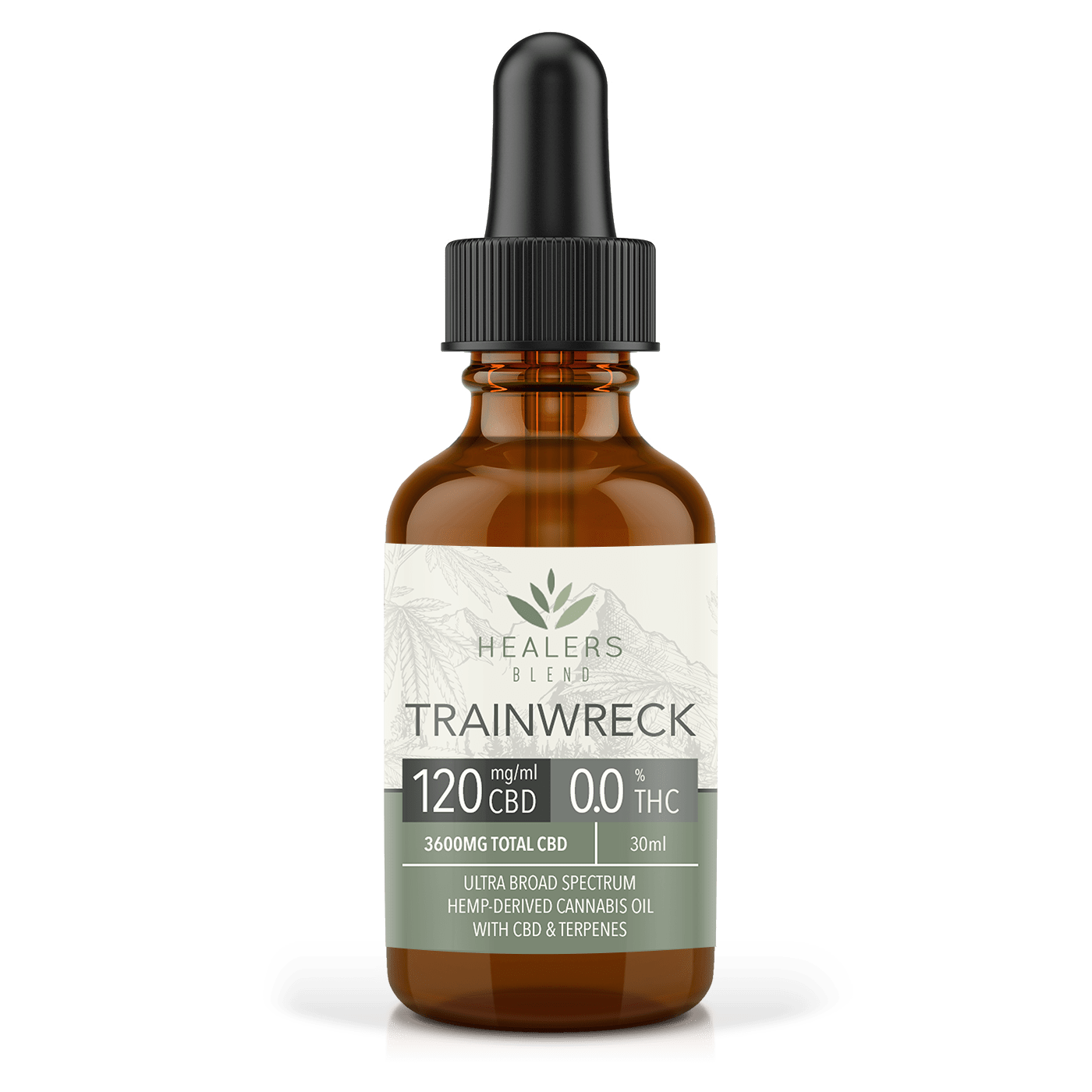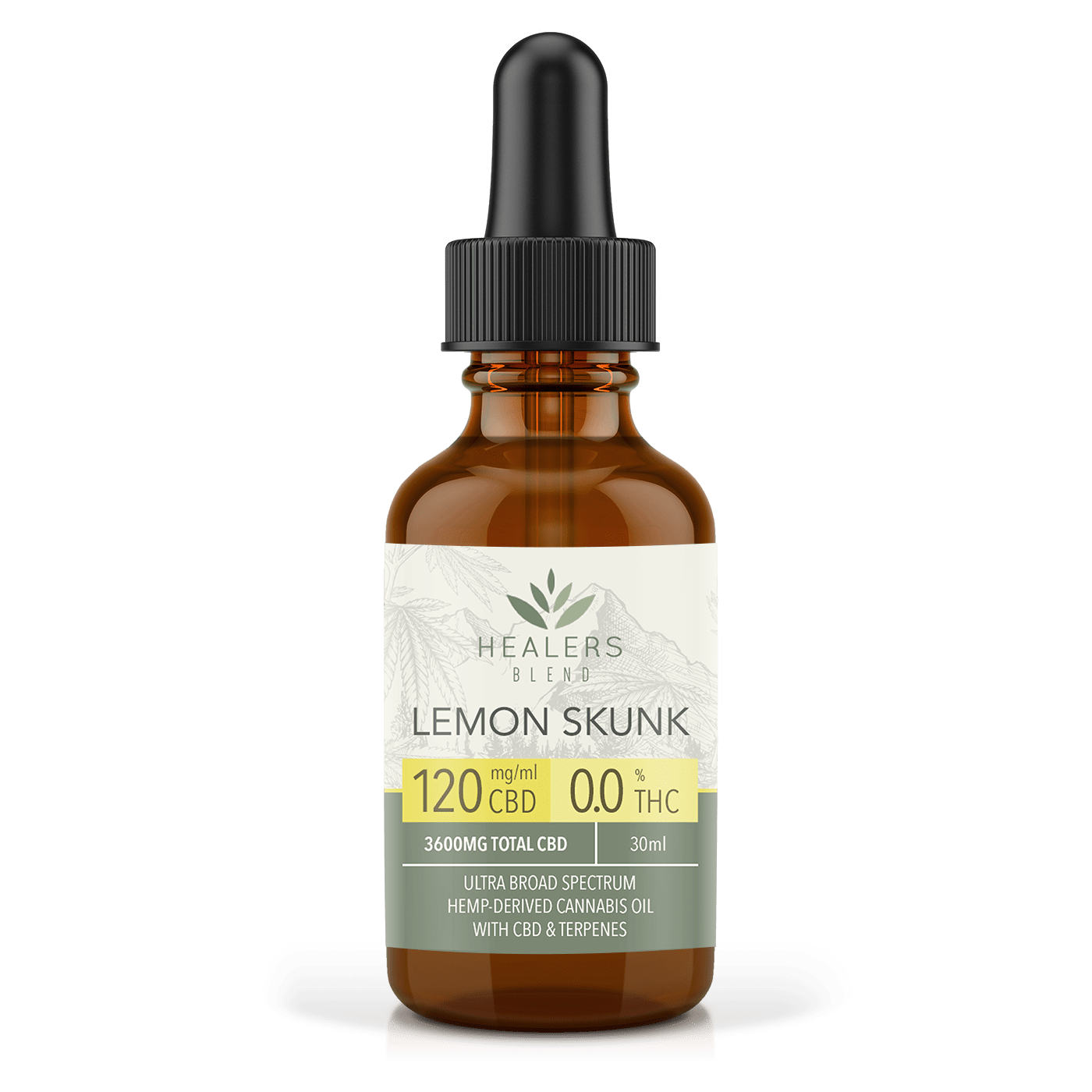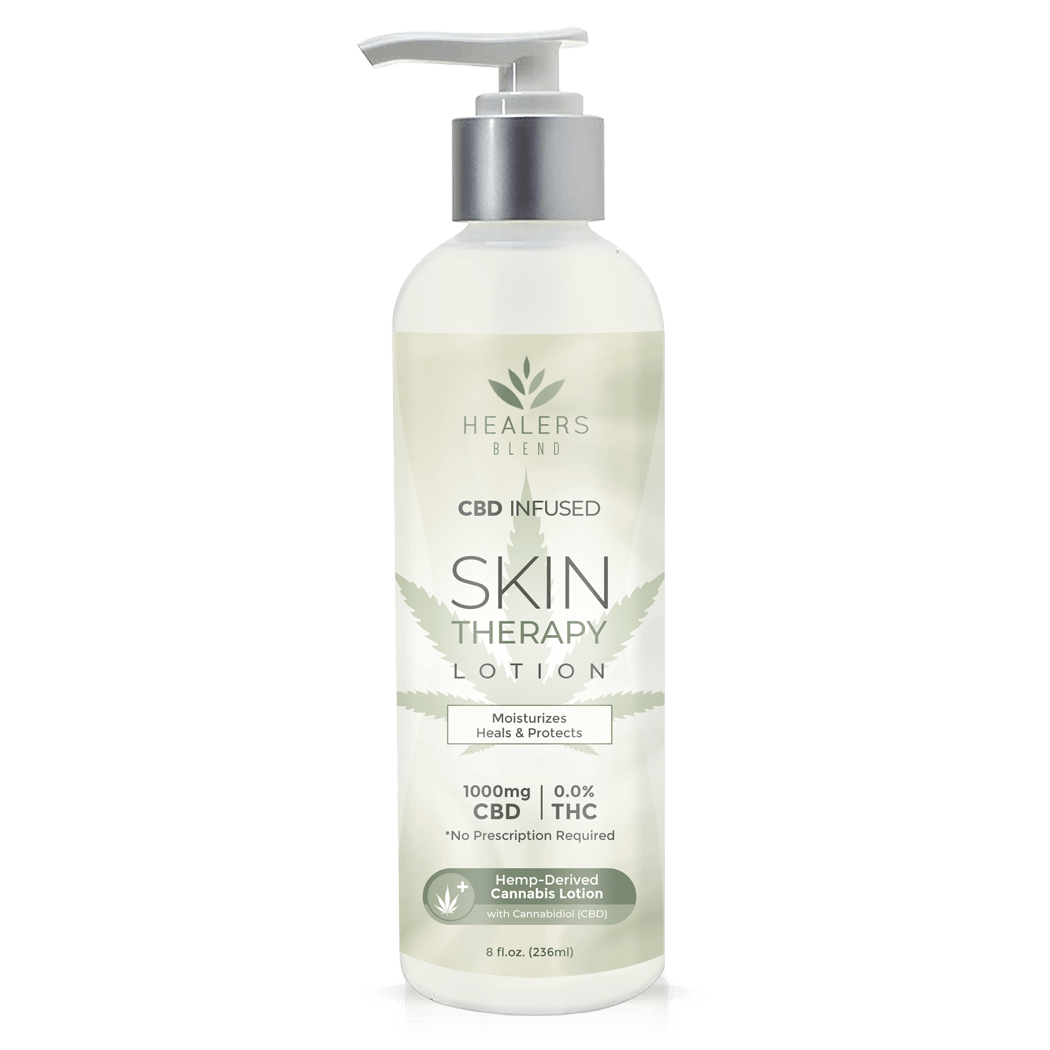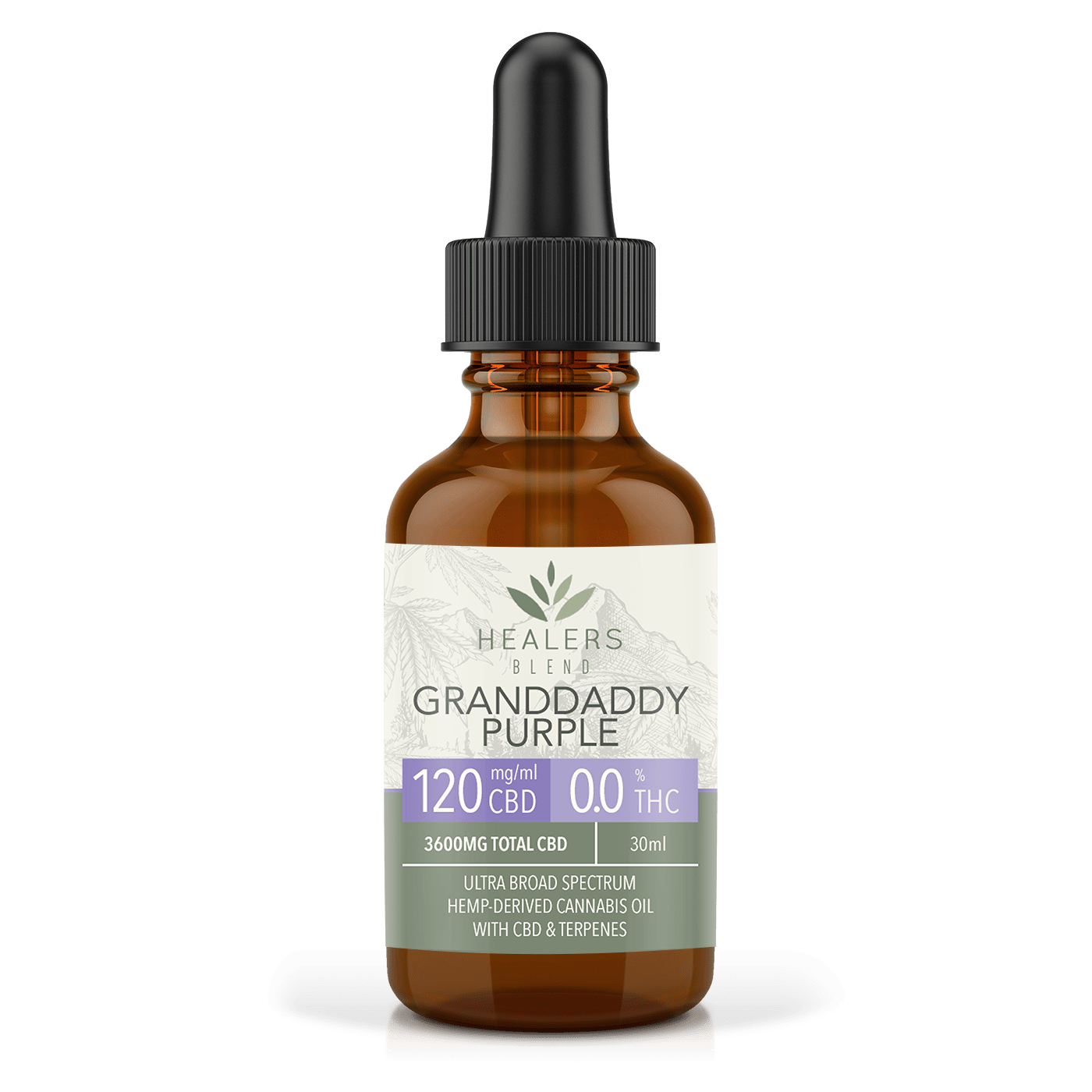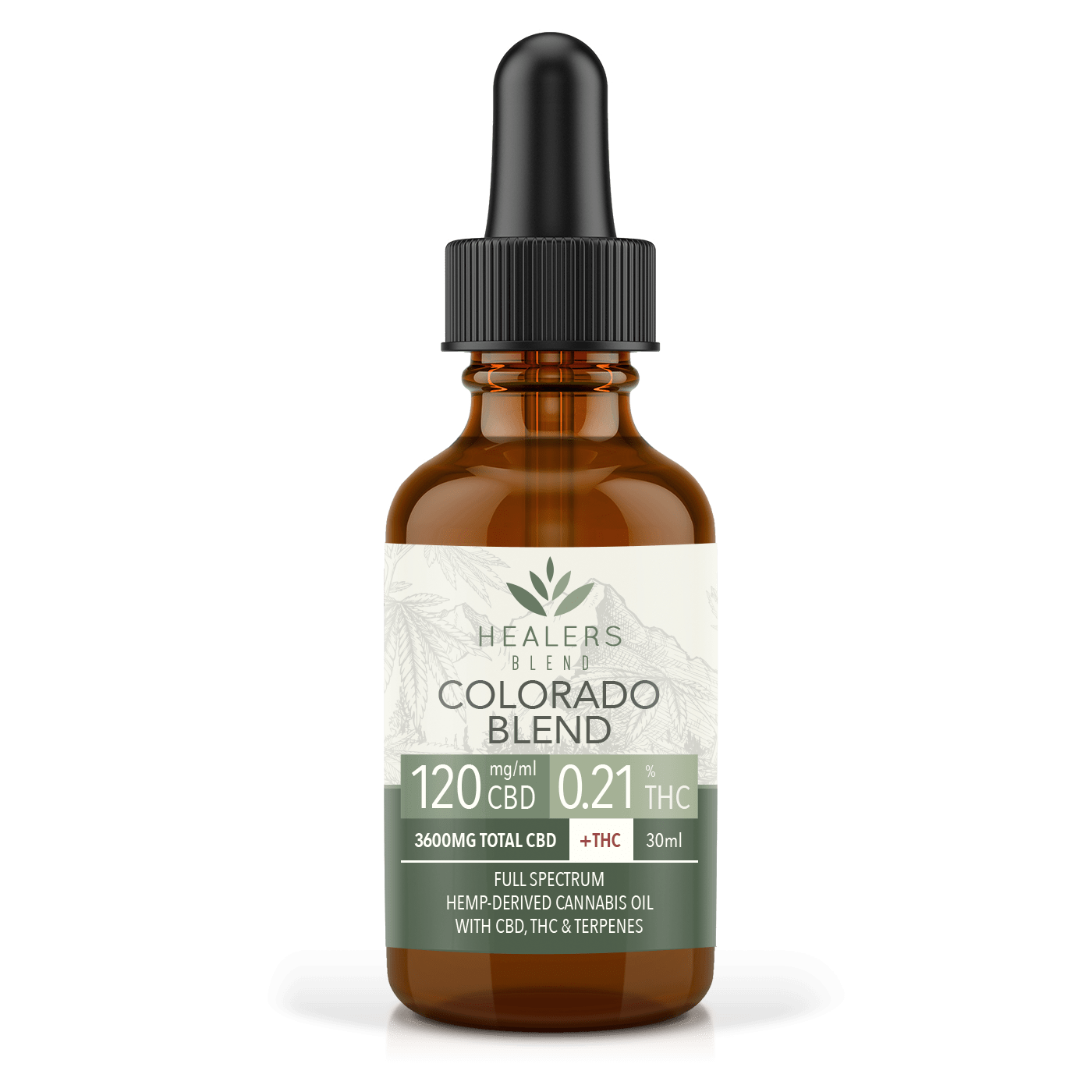The information in these pages are designed for both the general consumer, as well as, health and medical practitioners seeking to expand their working knowledge of cannabis and the potential of cannabinoid based therapies. While we work to ensure the information in these pages and resources is accurate and up to date, we do not make any claims as to the veracity or totality of the information contained herein. Research into cannabis as medicine is ongoing and our understanding of its many potential benefits continues to grow everyday. Our hope is that you will find this information beneficial and inspiring in your own search to better understand the potential of this incredible plant to increase overall health, vitality, and well-being. CBD products are not approved by the FDA for the diagnosis, cure, mitigation, treatment, or prevention of any disease. We are restricted from making any claims about the efficacy of our specific CBD products to treat or cure any disease or medical conditions. You should always seek the advice of a physician before adding nutritional supplements to your diet. The following information is presented for educational purposes only. Healers Blend provides this information to provide an understanding of the potential applications of cannabidiol. Links to third party websites do not constitute an endorsement of these organizations by Healers Blend and none should be inferred.
Concerning CBD and Epilepsy the questions asked regularly are:
How much CBD should I take for epilepsy and seizures?
What is the best CBD oil for epilepsy and seizures?
How does CBD work to effect epilepsy and seizures?
What are the side effects of CBD?
In this FAQ, we will answer the above questions, and walk you through the basics of using Healers Blend CBD products.
- The FDA Guidelines (legal stuff)
- Will CBD Help Epilepsy and Seizures? – The Current Research
- Finding Your Minimum Effective Dose – How Much CBD Do I Take And How Often?
- How To Determine Dosage Based On Type of Product
- CBD Side Effects and Drug Interactions
1. The FDA Guidelines Concerning The Use Of CBD Oil For Epilepsy and Seizures
(Let’s get the legal stuff out of the way first)
It is important to note that CBD products are not approved by FDA for the diagnosis, cure, mitigation, treatment, or prevention of any disease. We are restricted from making any claims about the efficacy of our specific CBD products to treat or cure any disease or medical condition including epilepsy.
None of the products or information made available to the public is intended to be a treatment protocol for any disease state, but rather are offered to provide information and choices regarding nutritional support for various health concerns. None of the information presented is intended to be an enticement to purchase and should not be construed as medical advice or instruction. The FDA would want us to remind you: You should always seek the advice of a physician before adding nutritional supplements to your diet.
2. Will CBD Help with Epilepsy and Seizures? – What the Current Research Says
Evidence over the past four decades in the form of anecdotal reports, preclinical studies, observational and small clinical trials suggests that cannabidiol (CBD) can help control seizures. In fact, the anti-convulsant effects of CBD have been endorsed by the U.S. Food and Drug Administration (FDA) with the approval of Epidiolex (cannabidiol) in 2018
for the treatment of two rare and severe forms of epilepsy, Lennox-Gastaut syndrome and Dravet syndrome.1 (https://www.fda.gov/newsevents/newsroom/pressannouncements/ucm611046.htm)
The anti-convulsant effects of CBD are not confined to these rare forms of epilepsy, however. Generally speaking, cannabinoids are anticonvulsant and have been referred to as “circuit breakers” because of their ability to reduce seizures and corresponding neurodegeneration.2,3 (https://www.ncbi.nlm.nih.gov/pubmed/18776886, https://www.ncbi.nlm.nih.gov/pmc/articles/PMC4189640/)
The evidence base supporting the anti-convulsant effects of CBD is diverse and increasingly compelling. It ranges from anecdotal reports by patient and healthcare providers4 (https://www.ncbi.nlm.nih.gov/pubmed/25845492) to pre-clinical studies involving animals to randomized controlled trials involving humans.5 (https://www.ncbi.nlm.nih.gov/pubmed/24854329) Two open-label studies and one double-blind, placebo-controlled trial showed meaningful reductions in seizure frequency and severity, specifically seizures associated with Dravet and Lennox-Gastaut syndromes (Median seizure frequency decreased by 40% in one of the open-label studies6 (https://www.ncbi.nlm.nih.gov/pubmed/26724101) and 53% in the placebo-controlled trial).7 (https://www.ncbi.nlm.nih.gov/pubmed/28538134) A 2018 systematic review and meta-analysis including four trials involving 550 patients with Lennox-Gastaut syndrome (LGS) and Dravet syndrome (DS) concluded that CBD contributed to a greater reduction in seizure frequency than conventional treatment alone.8 (https://www.ncbi.nlm.nih.gov/pubmed/30390221)
For your convenience, and to assist with your research, we have assembled an index of published studies on CBD as a treatment for epilepsy. For more information on the studies relating to the use of CBD for epilepsy and seizure therapy, go to this page.
3. Finding Your Minimum Effective Dose: How Much CBD Do I Take And How Often?
Due to FDA regulations we cannot give specific advice on how to use CBD for a particular condition such as epilepsy. Fortunately though, the process to find a minimum effective dose of CBD for any condition, is very simple. The key to finding the most effective dosage is by using what is called, a Stepwise Dosing procedure.
Stepwise Dosing is a process by which you first establish a baseline dosage, then adjust the dosage incrementally over a set period of time (typically 3 days) until you find your effective dose.
It is important to recognize that everyone responds a little differently to CBD so there is no set dose for everyone or every condition. By following a stepwise dosing procedure you can find the most effective dosage of CBD for you.
The Stepwise Dosing Procedure
Start Low and Go Slow: The first step to finding your minimum effective dose is to establish a baseline dosage. Since many people report good results with CBD at low doses, we suggest you start with a minimal dose and slowly increase the dosage until you find results. Start with a small baseline dosage between 2-5mg, 2X or 3x daily (6-10mg total).
- Maintain your baseline dosage for 7 days taking note of how the CBD interacts with your body.
- After the initial 7 days of your baseline CBD dosage, if you are not receiving the benefit you need, then increase the daily dosage by 1-2mg every 3 days until you find the dosage that works best for you.
- Once you have determined your minimum effective dose you may wish to decrease your dosage by one step to see if you can maintain the benefits at a slightly lower dosage.
Important Note: Typically, people decide to try CBD because of a specific condition, only to find it helps other areas of their body as well. Remember, your endocannabinoid system runs throughout the entire body at a cellular and sub-cellular level. CBD is a whole-body compound. When you start taking CBD for the first time, pay attention to everything going on in your body. Do not be surprised if you find various benefits from your dosage.
About Sleep: Often times, certain conditions or side-effects from medication can create insomnia. Sleep is essential to the bodies healing and recovery process. If sleep deprivation is an issue, you may want to consider weighting your dosage heavier at night to assist with a more sound sleep.
Establishing A Baseline Dosage Based On Weight
If you feel you need a higher dosage as a starting point we have created the following chart to assist you. This chart is submitted as a suggestive guide only and is not meant to take the place of a qualified physician.
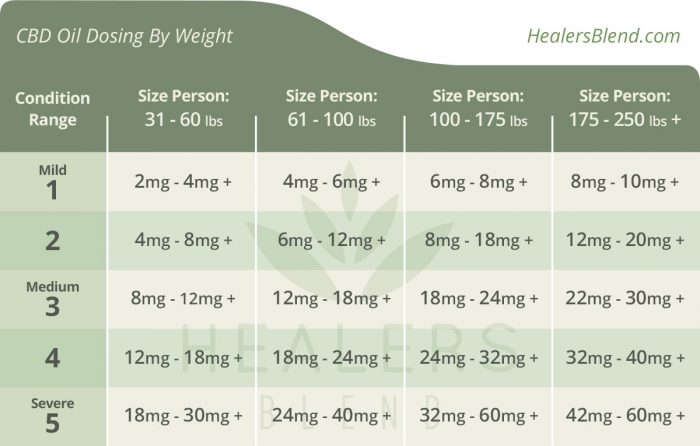
4. How To Determine Dosage Based On A Specific Product
Dosing With Sublingual CBD Oils
Once you have established a minimum effective dose using the stepwise dosing procedure, the following chart will help you determine which sublingual oil potency will best meet your daily dosage requirement. To find the best product match for your dosage simply match your daily dosage to the row on the chart labeled “30 Day Supply in Bottle”. For example: If you need 15mg CBD daily then according to the chart you would need a 450mg product. The chart also acts as a guide to how to use the glass dropper to measure out CBD in milligrams.
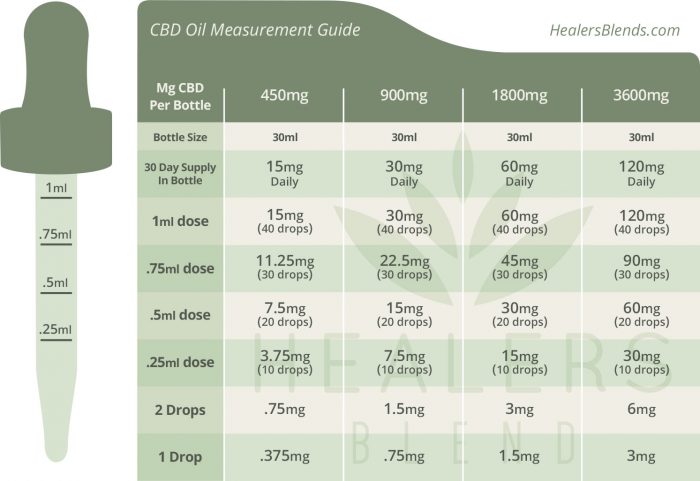
5. Possible Side Effects Of CBD And Drug Interaction
There are multiple studies demonstrating the effectiveness of CBD in treating various conditions. Most of these studies conclude that CBD (cannabidiol) is safe and virtually free of side effects.
A review on the Safety and side effects of cannabidiol by the NCBI for example suggests that controlled CBD (cannabidiol) administration is safe and non-toxic in humans and animals. It also does not induce changes in food intake; nor does it affect physiological parameters like heart rate, body temperature or blood pressure. Also, according to this review paper, “high doses up to 1,500 mg/day of CBD are reportedly well tolerated in humans.”
There are very few known side effects of CBD, these are mostly minor but you should be informed before taking CBD:
- Inhibition of hepatic drug metabolism – CBD and other plant cannabinoids can potentially interact with some pharmaceuticals by inhibiting the activity of cytochrome P450, a family of liver enzymes. This key enzyme group is responsible for metabolizing some of the drugs we consume. At sufficient dosages, CBD will temporarily deactivate cytochrome P450 enzymes, thereby altering how we metabolize certain compounds. A 2013 report on a clinical trial using GW Pharmaceutical’s Sativex, found no interactions with CYP enzymes when approximately 40mg of CBD were administered.
GRAPEFRUIT WARNING: If your medication has a grapefruit consumption warning label then you should not take CBD without first talking to your doctor or pharmacist to see if CBD will inhibit the efficacy of your medication. - Dry mouth- Some people have reported an unpleasant dry sensation in the mouth.
- Increased tremor with Parkinson’s at high CBD dosages – There are studies showing the potential of CBD to help alleviate symptoms of Parkinson’s disease. However, there have been reports of CBD increasing tremors when taken at very high dosages. Reducing intake to a smaller dosage will typically eliminate increased tremors.
- Lightheadedness – In cases where extremely high dosages of CBD are being taken some people have reported temporary lightheadedness.
- Drowsiness – Higher dosages of CBD may cause of drowsiness. If you are affected this way, you should not operate machinery or drive a vehicle. Conversely, due to its bi-phasic nature, micro-doses of CBD act as a wake-inducing agent.
Special Precautions & Warnings:
Pregnancy and breast-feeding: There is not enough reliable information about the safety of taking CBD if you are pregnant or breast feeding. Stay on the safe side and avoid use.
References
1. Press Announcements – FDA approves first drug comprised of an active ingredient derived from marijuana to treat rare, severe forms of epilepsy [press release]. Office of the Commissioner2018.
2. Alger BE. Seizing an Opportunity for the Endocannabinoid System. Epilepsy Curr. 2014;14(5):272-276.
3. Katona I, Freund TF. Endocannabinoid signaling as a synaptic circuit breaker in neurological disease. Nat Med. 2008;14(9):923-930.
4. Press CA, Knupp KG, Chapman KE. Parental reporting of response to oral cannabis extracts for treatment of refractory epilepsy. Epilepsy & behavior : E&B. 2015;45:49-52.
5. Devinsky O, Cilio MR, Cross H, et al. Cannabidiol: pharmacology and potential therapeutic role in epilepsy and other neuropsychiatric disorders. Epilepsia. 2014;55(6):791-802.
6. Devinsky O, Marsh E, Friedman D, et al. Cannabidiol in patients with treatment-resistant epilepsy: an open-label interventional trial. The Lancet Neurology. 2016;15(3):270-278.
7. Devinsky O, Cross JH, Laux L, et al. Trial of Cannabidiol for Drug-Resistant Seizures in the Dravet Syndrome. N Engl J Med. 2017.
8. Lattanzi S, Brigo F, Trinka E, et al. Efficacy and Safety of Cannabidiol in Epilepsy: A Systematic Review and Meta-Analysis. Drugs. 2018;78(17):1791-1804.


